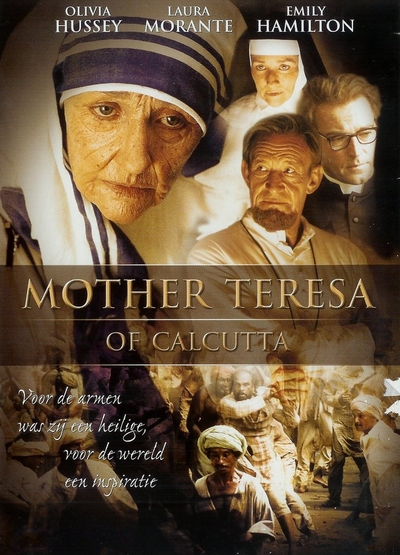The film tells the story of Judah Ben-Hur, a Jewish prince and merchant living in Jerusalem, which is contrasted and intertwined with the life of Christ. It opens by telling the story of Christ's birth and visit by the Magi. Cut to 30 years later, when Roman citizen Messala, Judah's childhood friend and his sisters sweetheart, returns from Rome, now a tribune and in charge of the Roman Garrison in Jerusalem. Having developed an unfailing devotion to Rome and a craving for power in his journeys, Messala hopes to attain Judah's help in discouraging rebellion from Jewish zealots. Judah says he is willing to use his influence to discourage violent rebellion, but refuses to inform on Jews who are critical of Roman rule. This angers Messalla who declares that Ben-Hur is now his enemy. When the new Roman governor is nearly killed by a loose shingle that is accidentally knocked of Ben-Hur's roof, he is wrongly implicated. Messala, still feeling betrayed, refuses to intervene. Judah is condemned to the galleys and his mother and sister are imprisoned. Ben-Hur vows revenge on Messala. This zeal for vengeance, along with his faith in God and concern for his family, help him get through his years as a galley slave. During a battle with Macedonian pirates Ben-Hur saves the life of the Roman Consul, Quintus Arrius, and gains his favor. Years pass and Quintus adopts Judah as his son. He learns roman ways and becomes a champion charioteer. Finally, on learning of the appointment of a new Roman governor in Judea, Ben-Hur returns home. There he meets his former slave (and secret romantic interest) Esther. She, persuaded by Judah's now leprous mother and sister that they'd be happier if he remembered them as they were before, informs him they have died. This news pushes Ben-Hur over the edge and he enters the chariot race in Jerusalem, knowing that Messala will also be in it and hoping to avenge his family's death. Messala is killed in the race when Ben-Hur breaks the wheel of his chariot. With his dying breath he tells Judah that his mother and sister still live and are now lepers. This causes Ben-Hur to plan revolt against Rome. Esther tells him of a new prophet, Jesus of Nazareth, who preaches of peace and forgiveness of enemies and attempts to dissuade him but he won't hear it. She decides to take his mother and sister to Jesus and Judah, reluctantly, helps her. At this moment however, Jesus is being crucified, Judah, on seeing him, recognizes him as the man who once saved his life by giving him water when he was being marched to the galleys and dying of thirst. He attempts to give Jesus water but is stopped by the Roman guards. When Jesus dies a great storm begins and Judah's mother and sister are healed of their leprosy. Ben-Hur, on witnessing Christ's forgiveness of his enemies, even in death, finally relinquishes his hatred and is reunited with his family.
The great thing about this film's story is the way Judah's journey is paralleled with Christ's saving mission. For example: After winning the chariot race, Judah is crowned with a laurel wreath by Pontius Pilate, Christ, of course receives his own crown from Pilate, but it's not one of earthly glory but of scorn. And while Judah feels emptiness on receiving his crown Christ, by wearing his with humble acceptance, accomplishes a part of our salvation. I also think it's interesting that Jesus' face is never shown in the film, He's always shown in profile and it's others reaction to Him that allows us to know him. The reason for this I think is because the film is not about Christ so much as it's about the effect he had on others. Judah, though a good, God-fearing man, is part of the old covenant. Though he initially purports to believe in peace he turns to vengeance and violence (an eye for an eye) when brought to suffering. Jesus, in founding the new covenant, teaches not just the letter of the law but of inner holiness, of love not just of fellow Jews but even of enemies. He lives out this teaching in his passion. It's only when Judah witness Christ's sacrifice and accepts his message that he finds inner peace.
The story's not the only great thing about this film. The score by Miklós Rózsa is spectacular, conveying the films epic scope while at the same time being appropriately subtle for the more dramatic scenes. The cinematography and set design are also superb. This film is a true epic and needs to be viewed on the biggest screen possible. It features two spectacular action set pieces. The sea battle, filmed using a mixture of miniatures and live size ships, is well staged and exciting, but the big attraction is of course the chariot race. Featuring nine real chariots, two of them actually driven by Heston and Boyd (for the most part) and the largest set ever built (up to that time); the race remains visceral and exciting after all these years. It was the benchmark for movie chase scenes for years afterward. The film's also filled with evocative imagery, Christ giving water to a thirsty Ben-Hur and the blood flowing from his cross into the water after the crucifixion (cleansing the world) are particularly memorable.
Its not without it's flaws. The acting is a little over the top at times, and first half feels a bit rushed pacing wise. More prominent is the occasionally stilted dialogue, which can probably be attributed to the fact that some of the writers had experience writing mostly for the theatre. These flaws, however, are mostly overshadowed by the films many strengths.
Ben-Hur is both a stirring drama and a massively entertaining epic. If you haven't seen it before (but who hasn't really), do yourself a favor and go rent it!
Score: 9/10






